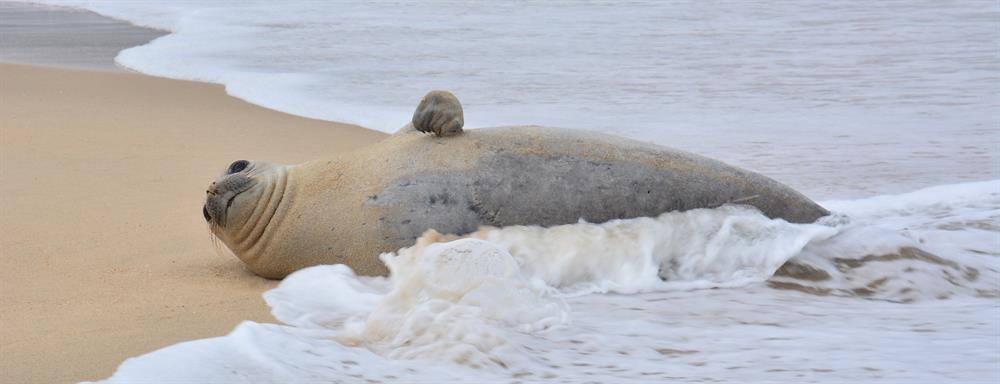Gallery Update Video
MOSSEL BAY NEWS & VIDEO - Despite their massive weight, southern elephant seals propel themselves quickly and speeds by these mammals as fast as 8km/h have been recorded.
A female southern elephant seal hauled herself on to the sand at Reebok on Sunday afternoon, 18 November.
Beverley and Buks Scholtz took their Yorkies for a walk on the beach when they saw the seal.
They called the NSRI, who gave them the number of S.M.A.R.T. (Stranded Marine Animal Rescue Team) and volunteers were immediately despatched and they monitored the seal.
Leslie is a two-year-old seal and first came ashore in early January 2018, in Jeffrey's Bay. Since it was the holiday season, she was captured and translocated to a beach with fewer people, but she was back the next day.
Elaine Schmidt from the NSRI kept an eye on her while she was ashore. Elaine named her after her sister, Leslie. She was tagged and her tag number is YY0078.
She returned to sea and has come out several times since at various places along the Southern and Eastern Cape coast, always for less than a day. At Reebok, this is the longest she has been ashore in one place.
Although a rare sighting, it is not quite uncommon for these "world travellers" to visit our coastline.

According to Wikipedia, southern elephant seals are the largest Antarctic seals and get their name from their size and the large proboscis of the adult males. The bulls typically weigh 2 200 to 4 000 kilograms and can measure from 4.2 to 5.8 metres in length. The females are much smaller, with a weight of 400 to 900kg and length of 2.6 to three metres.
Leslie's presence on the Reebok beach has given the volunteers of S.M.A.R.T. the opportunity to watch and enjoy her behaviour. 2018 was an exceptional year for the non-profit organisation as it has monitored and rescued 11 sub-Antarctic fur seals as well as two Antarctic fur seals.
Watch a video below:
The team hoped to see an elephant seal and was elated at the news of Leslie on a local beach. Although Leslie went back into the ocean on Tuesday afternoon, 20 November, she might rest on our shores again.
Please do not attempt to go near seals; they move extremely fast and can be aggressive.
Contact S.M.A.R.T. (072 227 4715) to report all marine animal strandings immediately. A false alarm is better than a dead animal on the beach.


Additional source: Wikipedia
Read a previous article: Olifantrob rus op Reebokstrand
'We bring you the latest Mossel Bay, Garden Route news'















